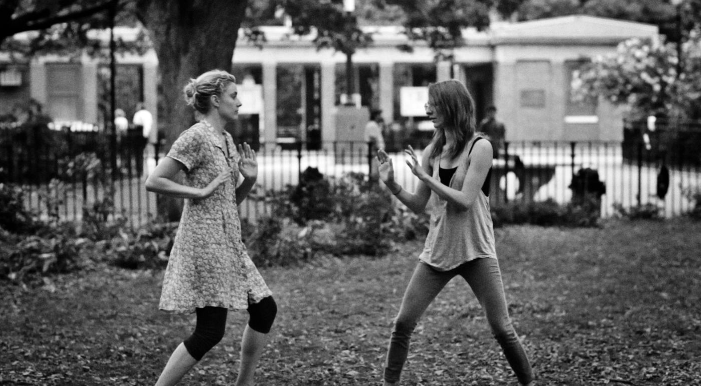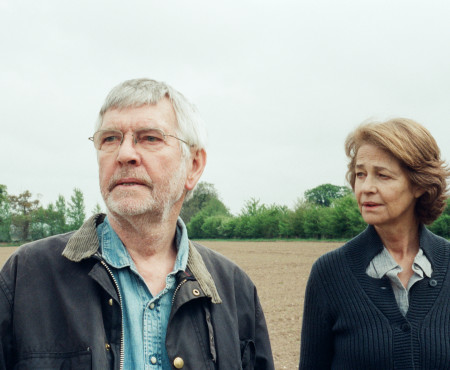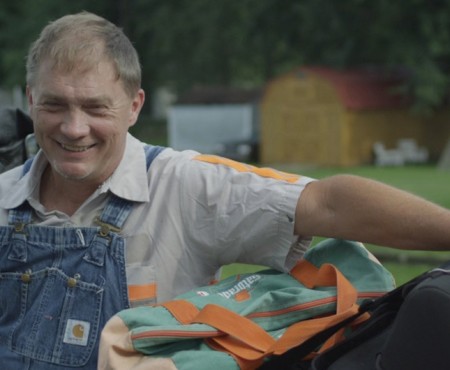The opening credits of Noah Baumbach’s last feature, 2010’s Greenberg, play over lingering shots of the film’s co-star Greta Gerwig as she drives around Los Angeles to the tune of Steve Miller Band’s “Jet Airliner”. The shot is unbroken, in profile and close up. It’s a revealing consumption of screen time on behalf of the director, devoting about two minutes to this particular face. Gerwig’s character in that film, Florence, isn’t headed anywhere relevant to the audience. By all appearances, she’s just driving. Baumbach’s insistence that our eyes be filled with this actress for so long – and for no apparent reason – is evidence of a blossoming infatuation with his current girlfriend that the writer-director can’t help sharing with his audience.
His new film Frances Ha is essentially an extension of that sequence. It’s 86 minutes of what could alternately be titled “Greta Gerwig Doin’ Thangs”. She runs, she takes a bath, she does laundry. She smokes and eats and whines about not having any money. For those already familiar with Gerwig (Hannah Takes the Stairs, Damsels in Distress, Arthur), enjoyment of Frances Ha is pre-determined. For those still unfamiliar, the film is an attempt to reel in all of whom Greenberg failed to hook.
Frances is a dance company apprentice in her mid-20s living in New York City with best friend Sophie (Mickey Sumner, Sting’s daughter). Their inseparability appears to be shatterproof until the day Sophie casually breaks the news that she’s moving in with her boyfriend. This unleashes the uncouth Frances aimlessly unto the world as she mildly embarrasses herself and makes a few objectionable decisions in the midst of trying to grow up a little.
It’s hard to accept that a movie this wafery could come from Baumbach, the filmmaker who offered up such vicious family dissections as Kicking and Screaming, The Squid and the Whale and Margot at the Wedding. There’s none of his prior bite or wit here as he and Gerwig (who co-wrote the script with Baumbach) mine cheap giggles from sitcom-level beats such as the one in which Frances, after hearing some distressing news, pours a sizable glass of wine.
Most of the characters that encounter Frances are entitled twentysomething loafers who never have anything interesting to say. They don’t even have anything interestingly boring to say. Their conversations are all pat, recycled swill from writers of far less caliber. They come off as pint-sized imitators of the intellectuals from Woody Allen’s Manhattan or even from Baumbach’s earlier features. But their pompous smarm isn’t parodied (as in Woody’s film) or scrutinized as an antithesis to emotional stuntedness (as in Baumbach’s). They’re just idly flapping their gums in yet another tiresome account of quarter-life plight. The film truly is a testament to how little the 43-year-old Baumbach is concerned with producing anything other than an excuse to fill the frame with Gerwig’s pouty face.
Shot romantically in black-and-white and embracing a frolicsome spirit, Frances Ha is clearly high on French New Wave fumes and a director-star relationship reminiscent of the romance between Jean-Luc Godard and Anna Karina. While Gerwig’s appeal is arguably all surface, Karina’s unearthly beauty gave way to an acute self-deprecating playfulness that made it impossible not to fall for her the way Godard inevitably did. Their many projects together were hardly one-note, but gleeful creative flourishes. Likewise Ingmar Bergman’s 1953 Summer with Monika featured the then object of his affection, Harriet Andersson, in a fiercely unlikable role that celebrated her spunk and dangerous unpredictability rather than simply settling on reveling in the contours of her face.
In Greenberg and now Frances Ha, Gerwig is being peddled as likable enough on shallow quirks alone. Character depth and momentum are forsaken in lieu of increasingly insipid banter and montage after mundane montage. The closest we get to character definition is during a brief sojourn to Sacramento where Frances visits her parents and, presumably, old friends. I say “presumably” because the entire interlude is reduced to yet another montage. She returns to New York City where (ostensibly) there are no consequences. Her poor decisions do nothing but prolong the film’s jarringly tidy ending which, at under 90 minutes, is a pretty remarkable feat.
Now I don’t wish heartbreak on anyone. But if Frances Ha is a love letter from Baumbach, a filmmaker who has always been most fascinating when plumbing the darkest recesses of human desires and failures, imagine what his break-up letter would look like.




















